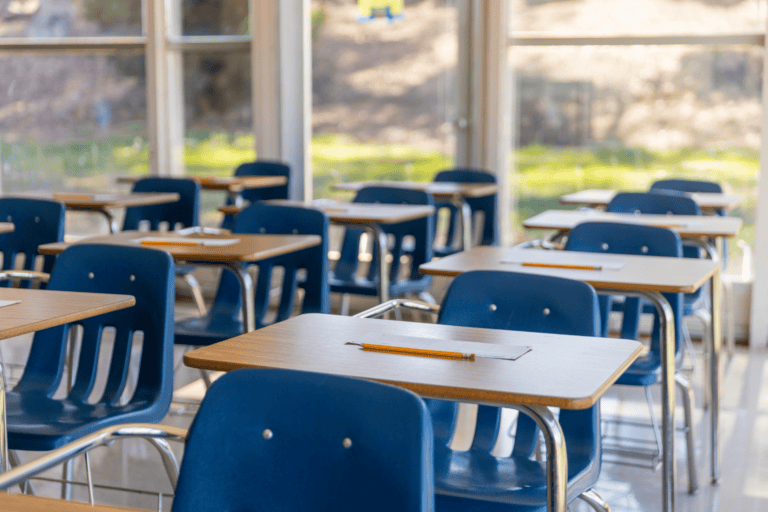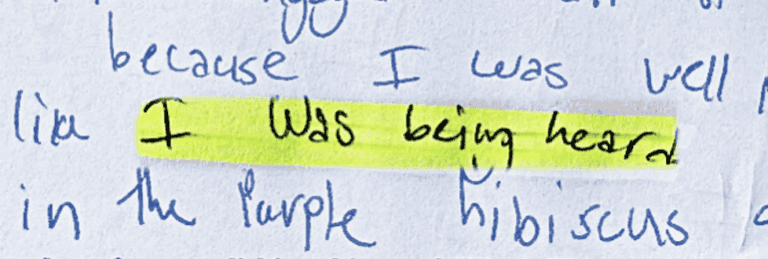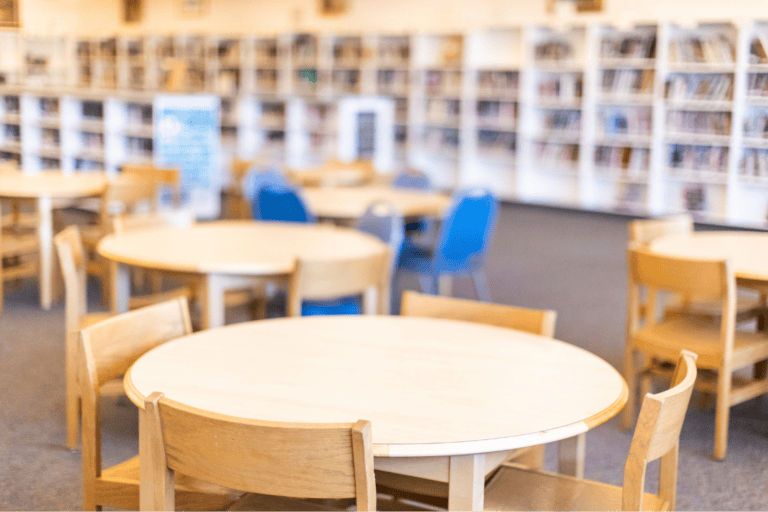REAL Results: How R.E.A.L. Helps Students Grow
It’s the start of the school year, and we’re eager to see how our R.E.A.L.® practitioners roll out R.E.AL.® in their classrooms this year. If there’s one thing we know for sure, it’s that the coming weeks and months will reveal incredible growth for students who learn our framework.
How do we know? We collect quantitative and qualitative data to document the impact of the R.E.AL.® program. Some of the most consistent results? Increased confidence in students’ ability to facilitate discussions themselves, an increase in respectful disagreement, increased clarity regarding grading, an increase in listening among students, an increase in the connection between writing and discussion, and an increased comfort asking questions during class discussion.
Here’s what the data showed — and our students said — about what they learned and how R.E.A.L.® helped them grow last year.
R.E.A.L.® helps students feel confident facilitating discussion themselves
Taking an active leadership role in discussion can feel scary for today’s teens. A majority of students surveyed did not feel safe in class discussion unless a teacher was facilitating the conversation before beginning R.E.A.L.®. That quickly changed, however.
Over the course of just three discussions, we saw a 29-point increase in middle school students and a 32-point increase in high school students who agree that their teacher does NOT need to facilitate discussion in order for it to feel safe.
Here’s what the students say:
- “I have grown in the discussion process, because in the beginning of the year I was scared to talk and thought I would be wrong. Now I know that my peers won’t judge me for what I say.” – 7th grade student
- “I feel more comfortable stating my own opinion. I also realize that my classmates are actually interested in what I have to say.” – 9th grade student
- “It has made me feel more confident in my social skills. I can feel safe when I have something to say to my class/group.” – 6th grade student
- “My class has grown because at first, everyone was ONLY calling on their friends, but now two people that AREN’T friends will call on each other based off of how many times they’ve spoken when they put their fingers up.” – 6th grade student
- “My class has really created a nice safe space where we can all share our ideas equally.” – 9th grade student
R.E.A.L.® helps students feel more comfortable disagreeing during discussion
One of the hardest things to do in conversation is disagree — and it’s particularly hard for students growing up in a polarized world. To quote one 9th grade teacher: R.E.AL.® helps students develop the ability to disagree with each other’s ideas, not entire identities!
Over the course of just three discussions, we saw an 18-point increase in female students, 14-point increase in male students, and 39-point increase in non-binary/gender fluid students who report that they are not afraid to disagree in a class discussion.
After six discussions, a majority (55%) of students surveyed reported that they are no longer afraid to disagree during class discussion.
Here’s what the students say:
- “I think that learning discussion skills helps me respect other people’s opinions more in the ‘real world.’ Doing discussions helps me learn how to listen and respectfully agree/disagree with my peers.” – 10th grade student
- “During the discussions, I have learned how to disagree with others kindly. I have also learned how to relate my text to the world, which is something I wasn’t taught in elementary.” – 6th grade student
- “I know that if I disagree on something I can say what I believe in a respectful manner. And, even if I don’t understand something, someone will always be there to help me and no one will judge me.” – 8th grade student
- “I have grown to speak up more when I disagree. When someone disagrees with me, I don’t mind it anymore.” – 6th grade student
- “You learn how to disagree with others without starting a fight or a heated argument, and you learn how to voice your opinion when it may be hard to sometimes.” – 7th grade student
R.E.A.L.® helps students trust how their teachers grade discussions
Discussions can be difficult to grade — which is frustrating for teachers and students alike. R.E.A.L.® provides a framework that offers clarity in the grading process and opens students to true growth, once they stop worrying solely about the impact of their in-class discussions on their transcripts.
After participating in R.E.A.L.®, students surveyed reported a 61.3% increase in agreement with the statement, “My teacher is CLEAR about how s/he grades discussion.”
As one ninth grade student said: “I think I started off thinking I had to say something to get a good grade. Now I actually have things I want to say and don’t just say them to get a good grade.”
For teachers, we know that R.E.A.L.® assessment structures are a widely-held favorite element of the program. That’s a topic for another blog post…
R.E.A.L.® helps students learn to truly listen to each other
Today’s teens don’t just need to learn how to speak with one another in person — they also struggle to learn how to deeply and actively listen.
Over the course of six discussions, we saw a 30-point increase for male and non-binary students and a 26-point increase for female students who report feeling like their classmates listen to them during discussion. After nine R.E.A.L.® discussions, students are five times more likely to feel heard by their classmates during class discussion.
Here’s what the students say:
- “I think that I have learned to listen more to others. I learn more then. And everyone deserves to have their voice heard.” – 6th grade student
- “I feel that I was able to listen a little more; I have a lot of strong opinions that I felt I needed to voice, but I realized that others do as well, and their points might actually be the same as mine.” – 10th grade student.
- “That has helped me to realize that everyone has a voice and not be afraid to use it.” – 8th grade student
R.E.A.L.® helps students connect class discussion to writing
Discussion is a holistic skill, which involves mastery of thinking, writing, and speaking. By the end of six R.E.A.L.® discussions, we saw a 27-point increase in middle school students and an 18-point increase in high school students who use notes from class discussion in their writing — a resulting percentage of about 84% for both grade levels.
Here’s what the students say:
- “I feel more confident taking notes down when reading a short story or a book. I feel that I can relate to others more, by using NVC (non-verbal communication).” – 7th grade student
- “Writing down notes during and before the discussion really helps with the speaking part.” – 10th grade student
- “I have learned to speak up and talk more. I also feel like I’m better at taking more useful notes in classes and on homework.” – 8th grade student
R.E.A.L.® helps students learn to ask questions during class discussions
A truly dynamic discussion involves a back-and-forth, perpetuated by the asking of thoughtful questions. Embracing vulnerability enough to pose those questions to peers, however, is a skill the R.E.A.L.® program can teach.
Over six discussions, we saw a 17-point increase in female students, 10-point increase in male students, and 12-point increase in non-binary/gender fluid students who report that they feel comfortable asking questions during class discussion.
Here’s what the students say:
- “R.E.A.L. has made me conscious that I have started to ask more questions to move the discussion along, rather than just relating to my classmates. I think that this is a vital discussion (and honestly life) skill and I’m still working on it, but I have definitely improved.” – 10th grade student
- “I feel a lot more comfortable asking questions than I did at the beginning. I also feel like it has helped me grow by really pushing me to use my voice for something I believe in.” – 8th grade student
Let’s get real this year
With school year ’23-’24 underway, we’re eager to get real — to collect more data, survey more students, and uncover more answers about how to teach the critical discussion skills today’s teens need to survive and thrive in school and life.







